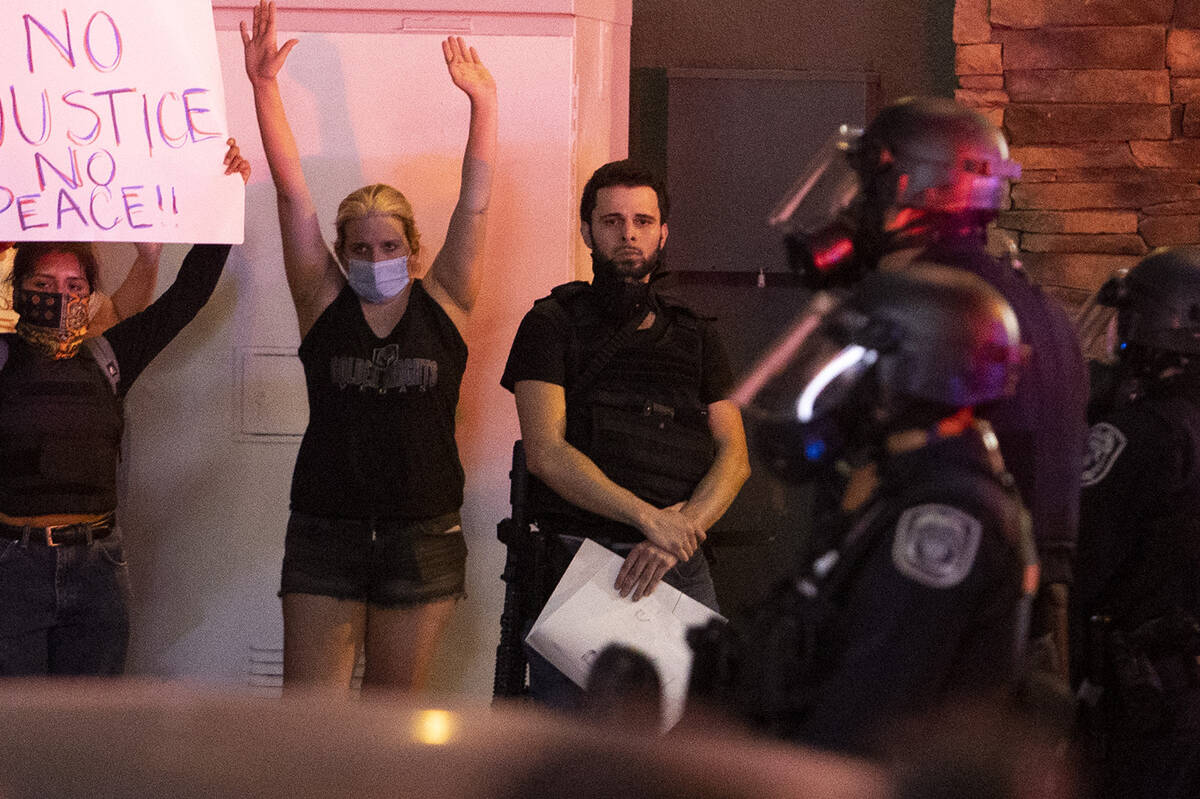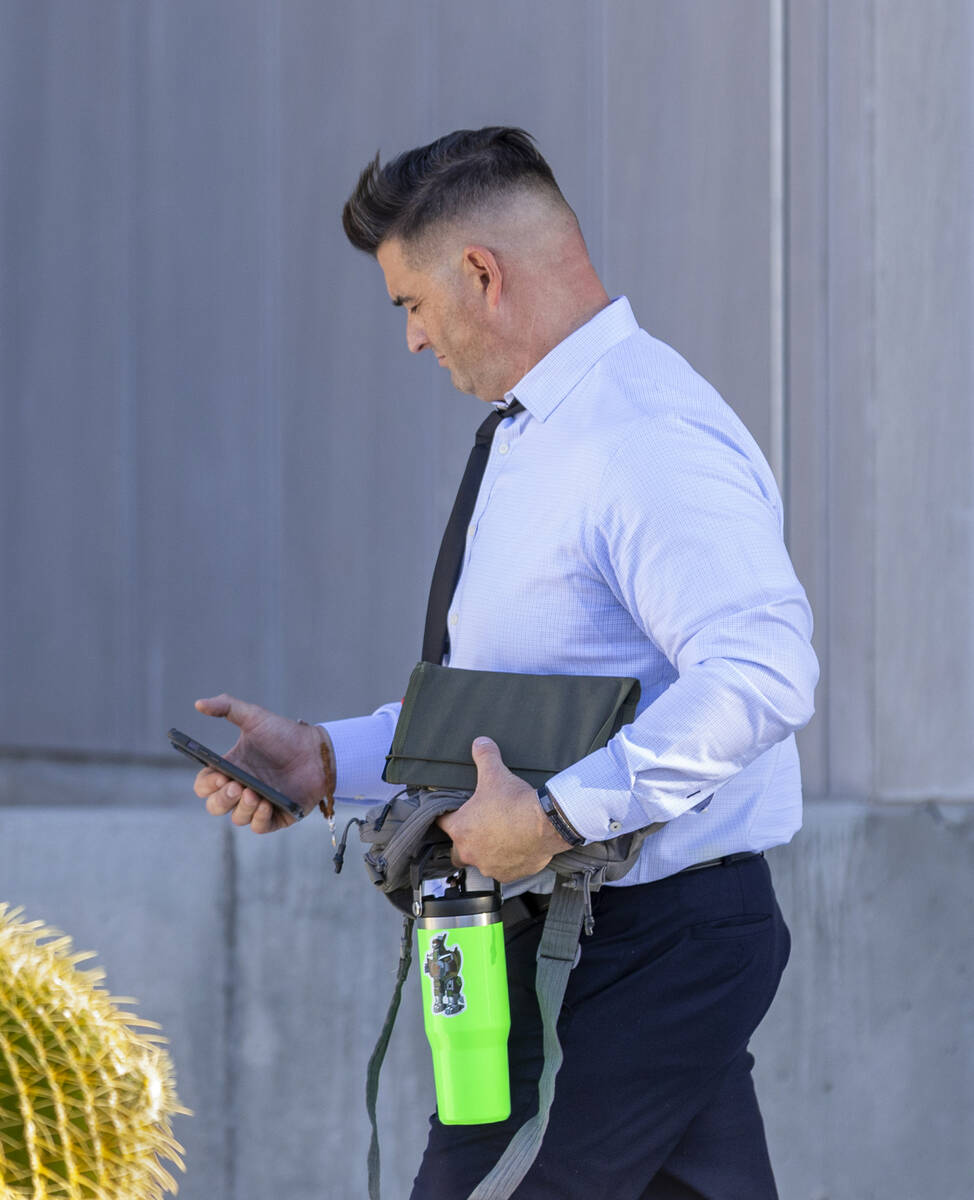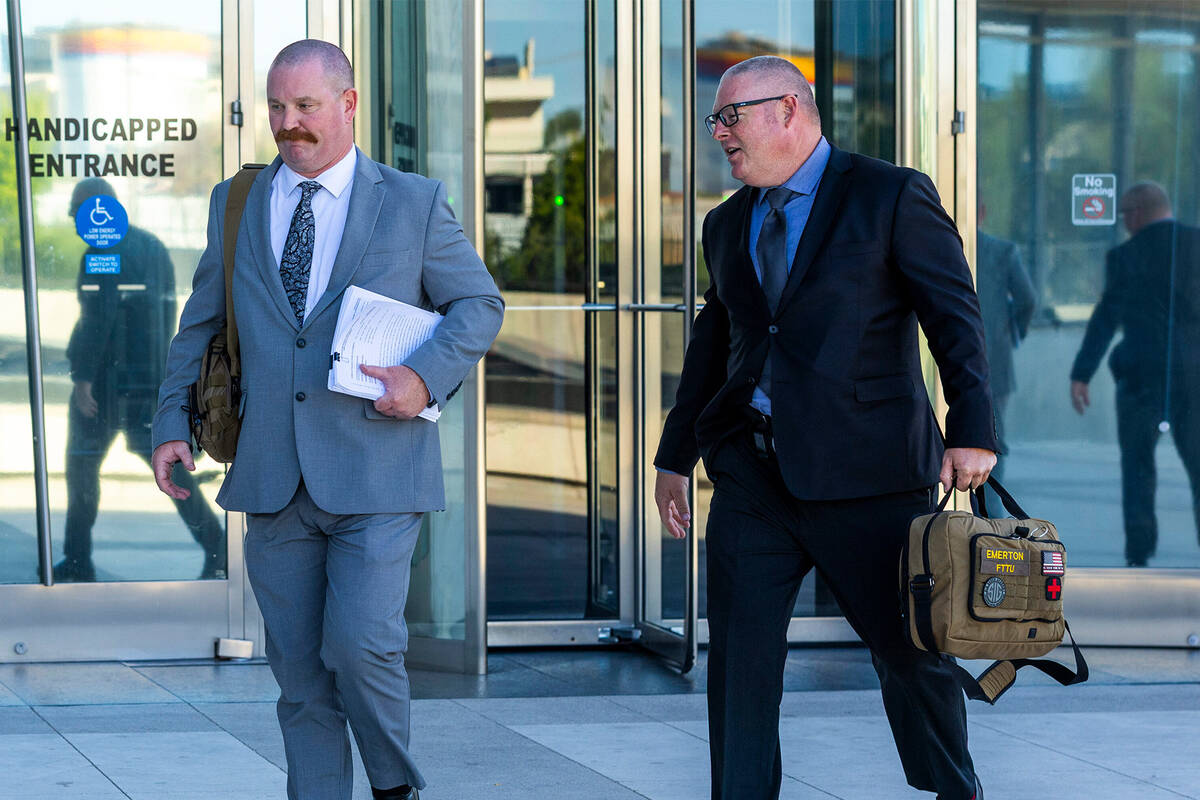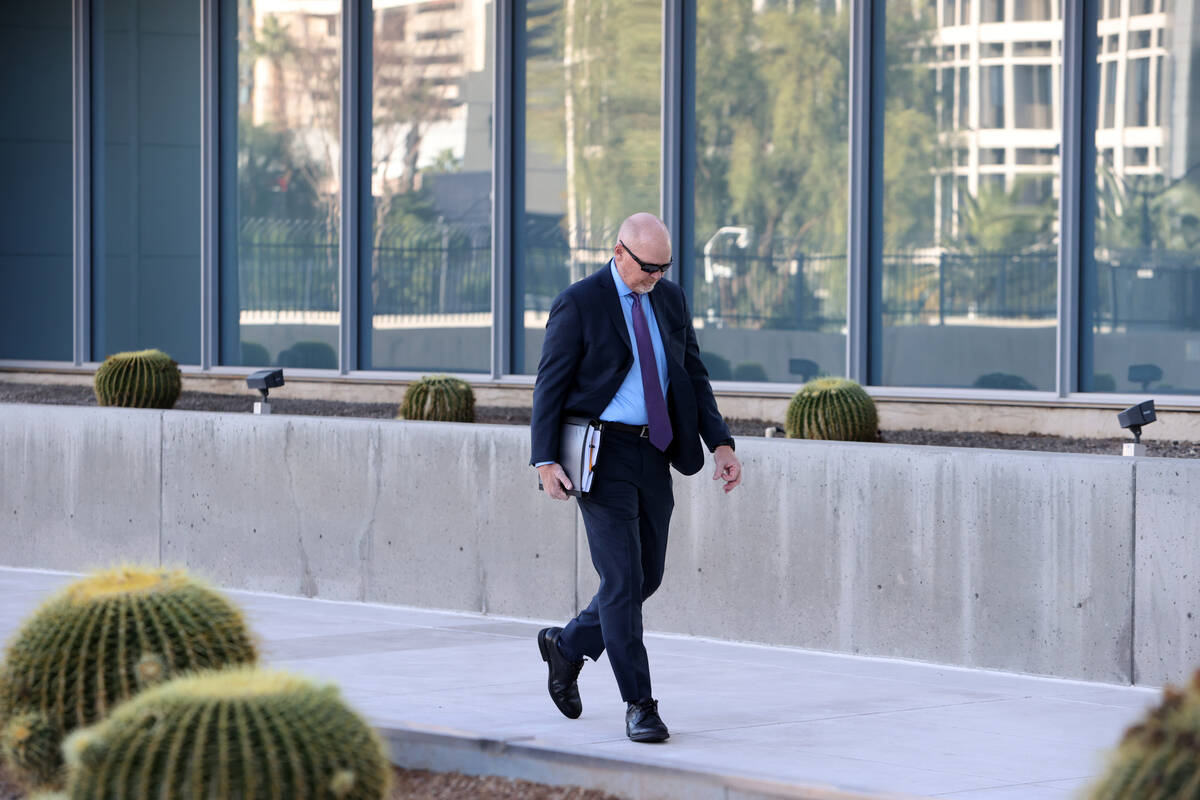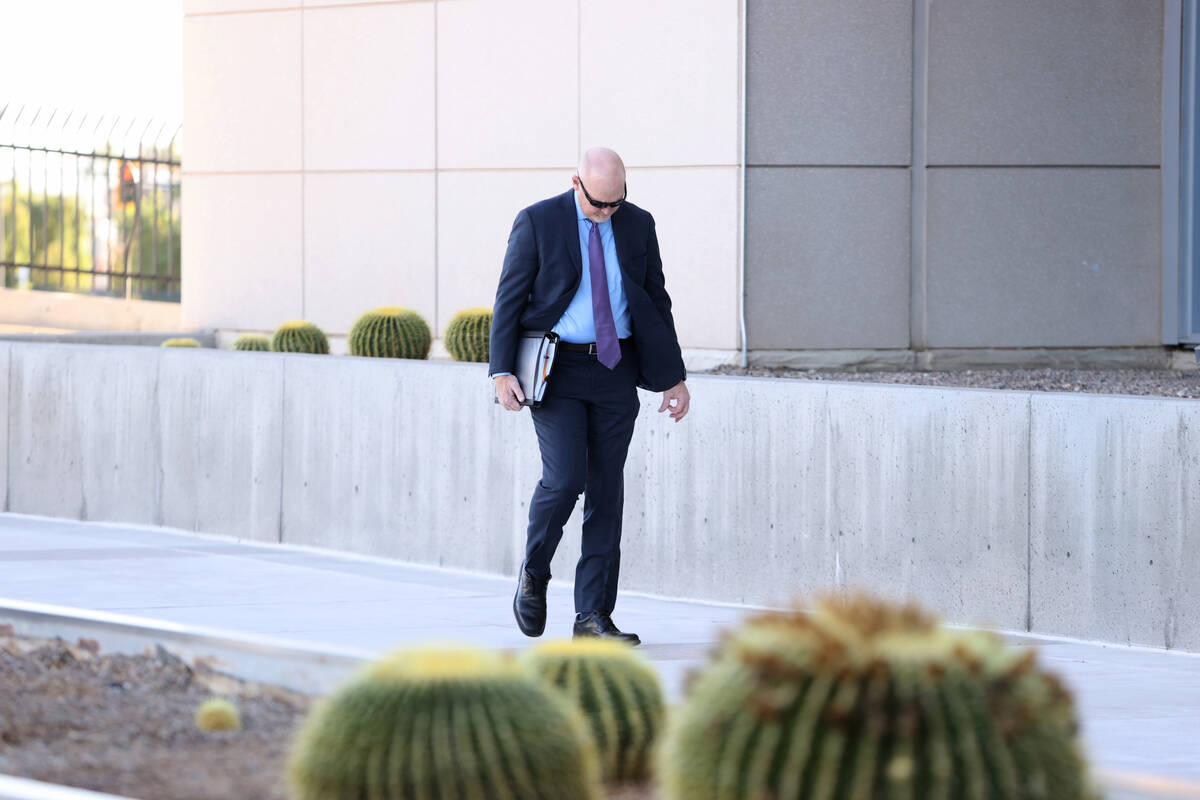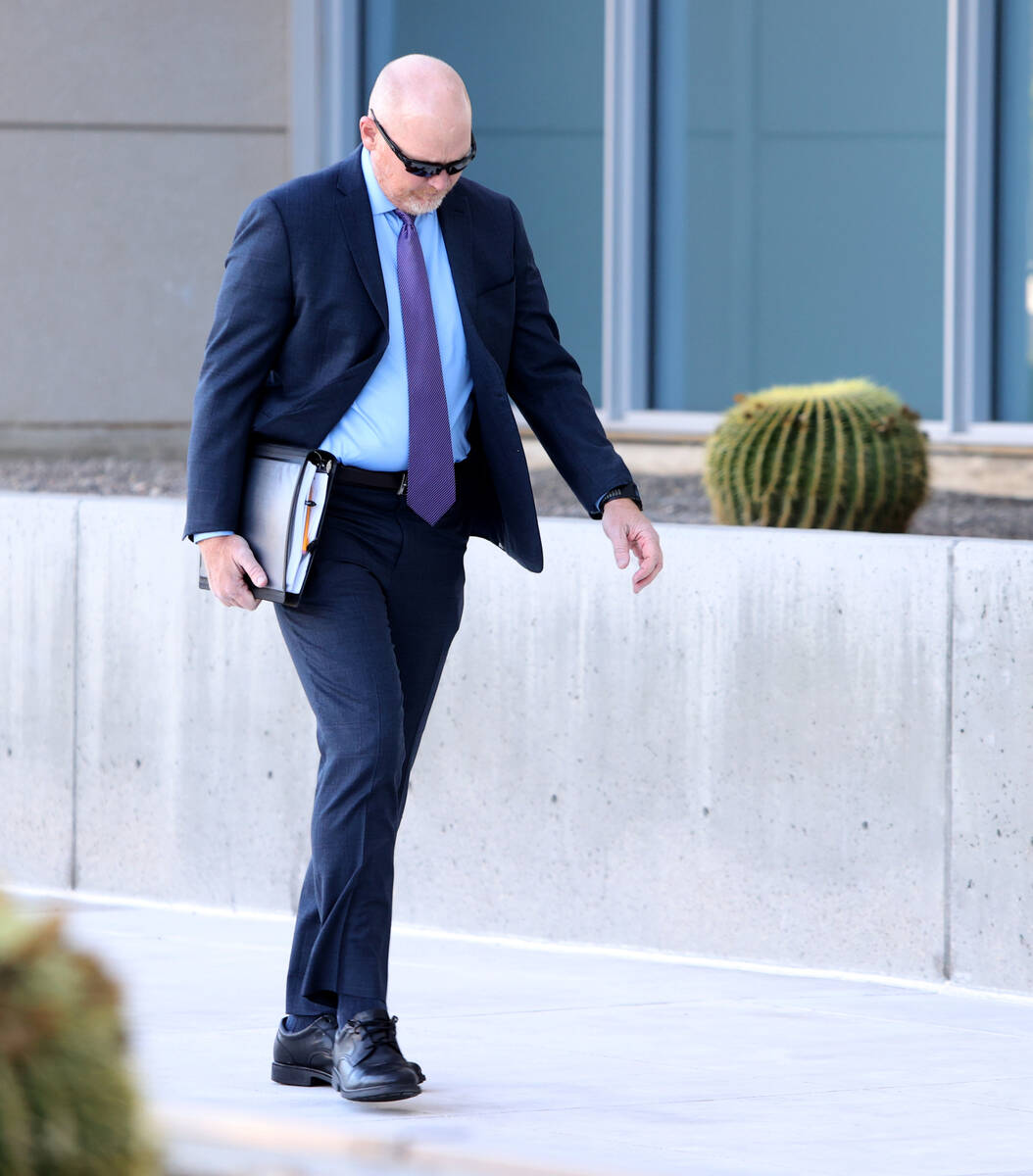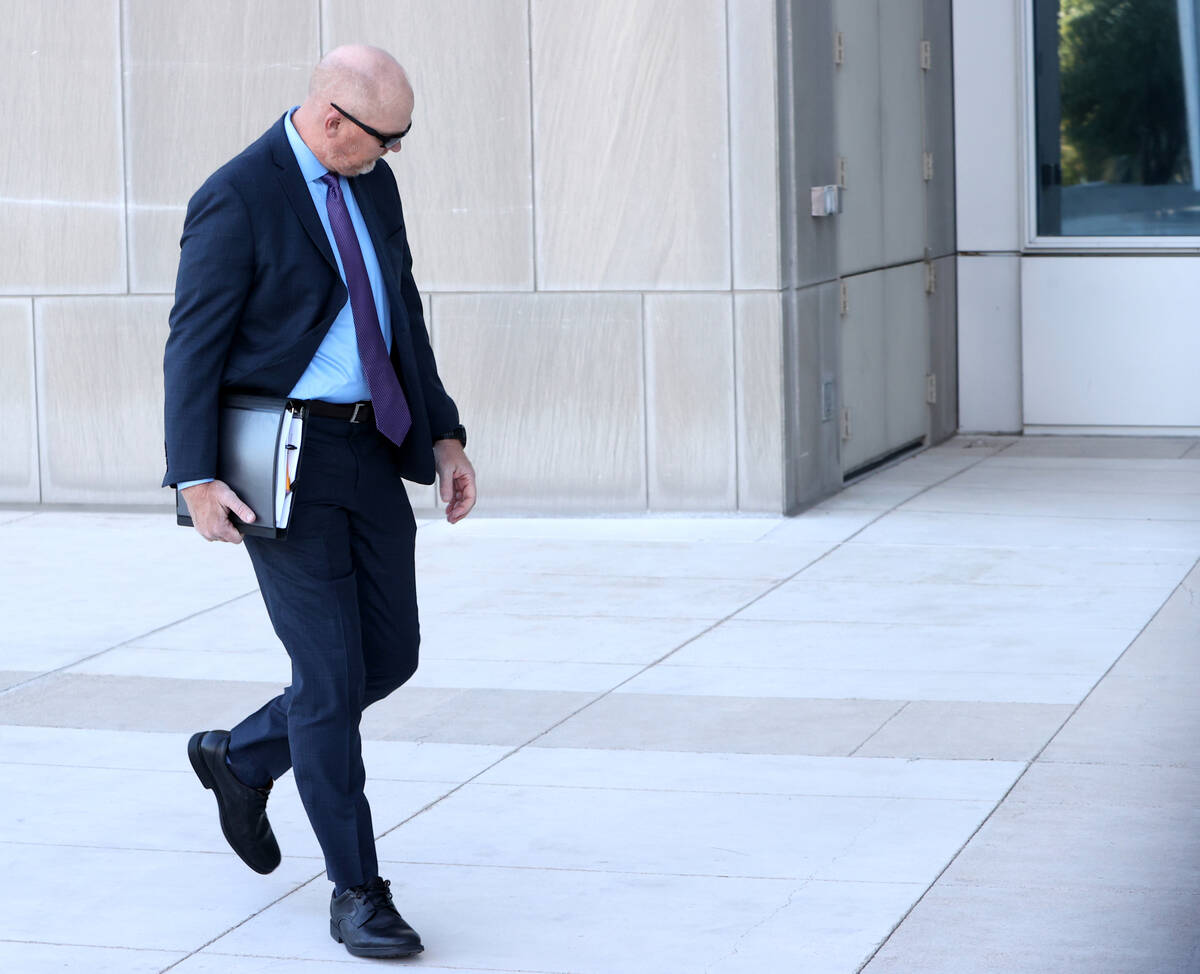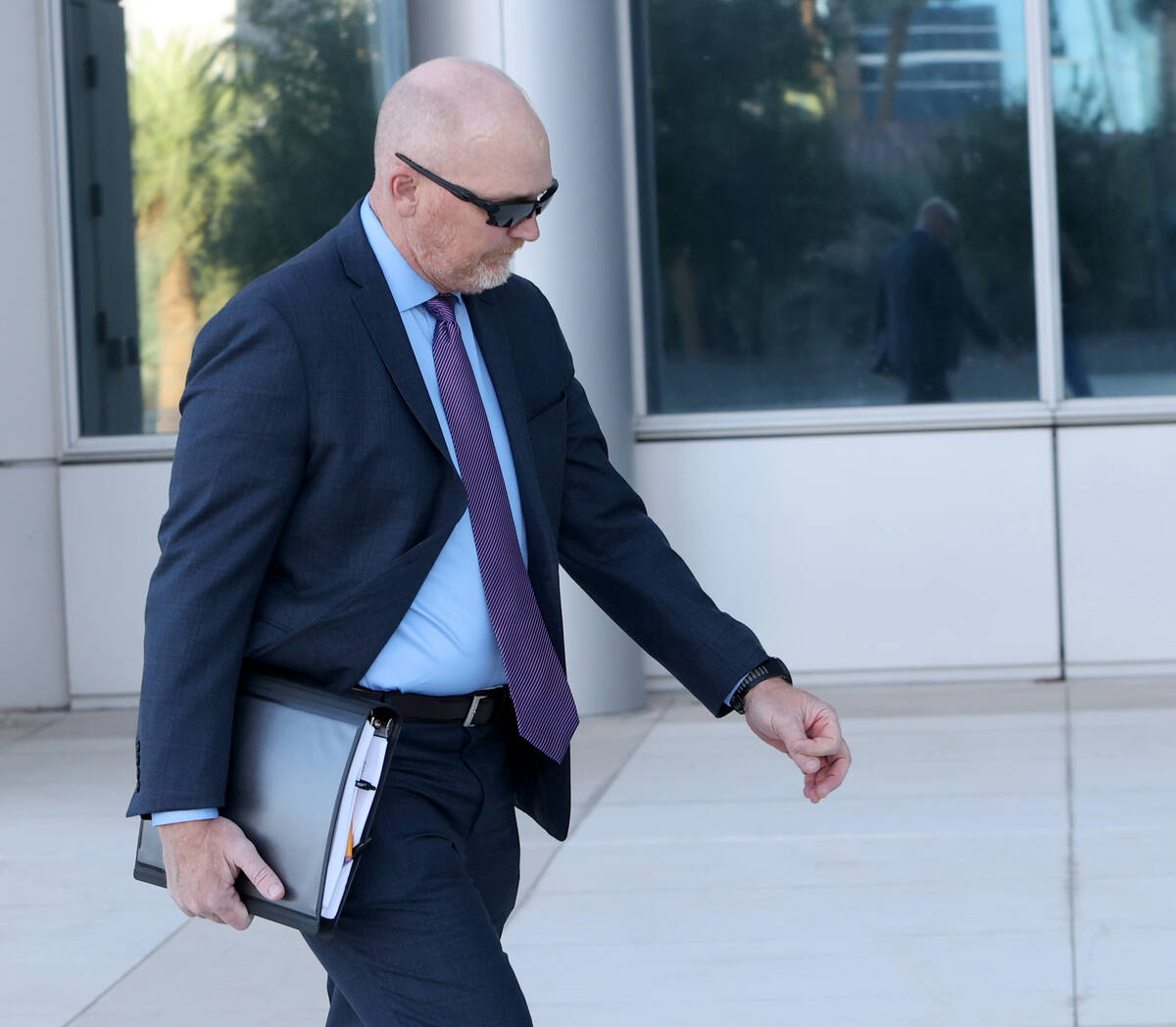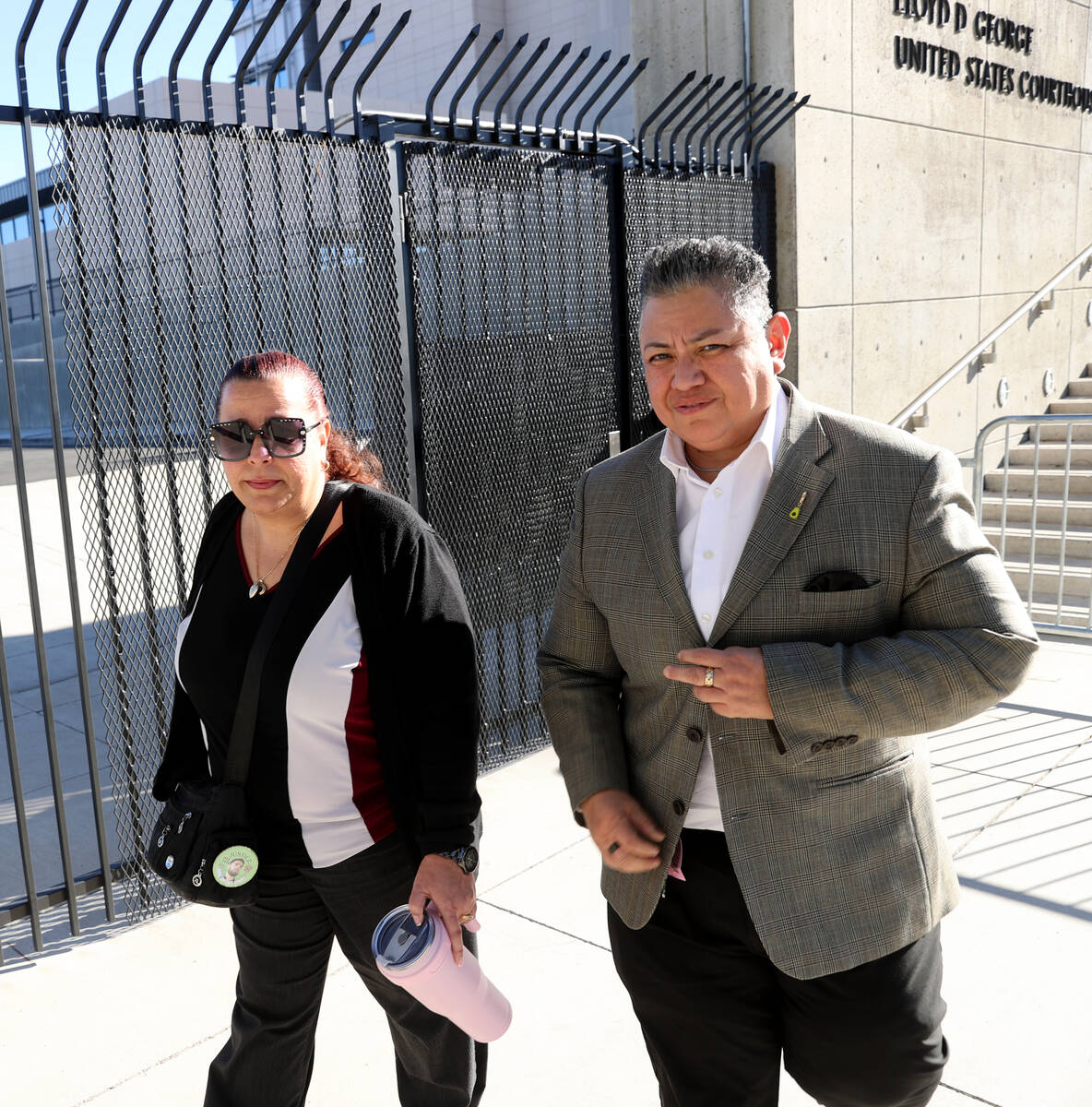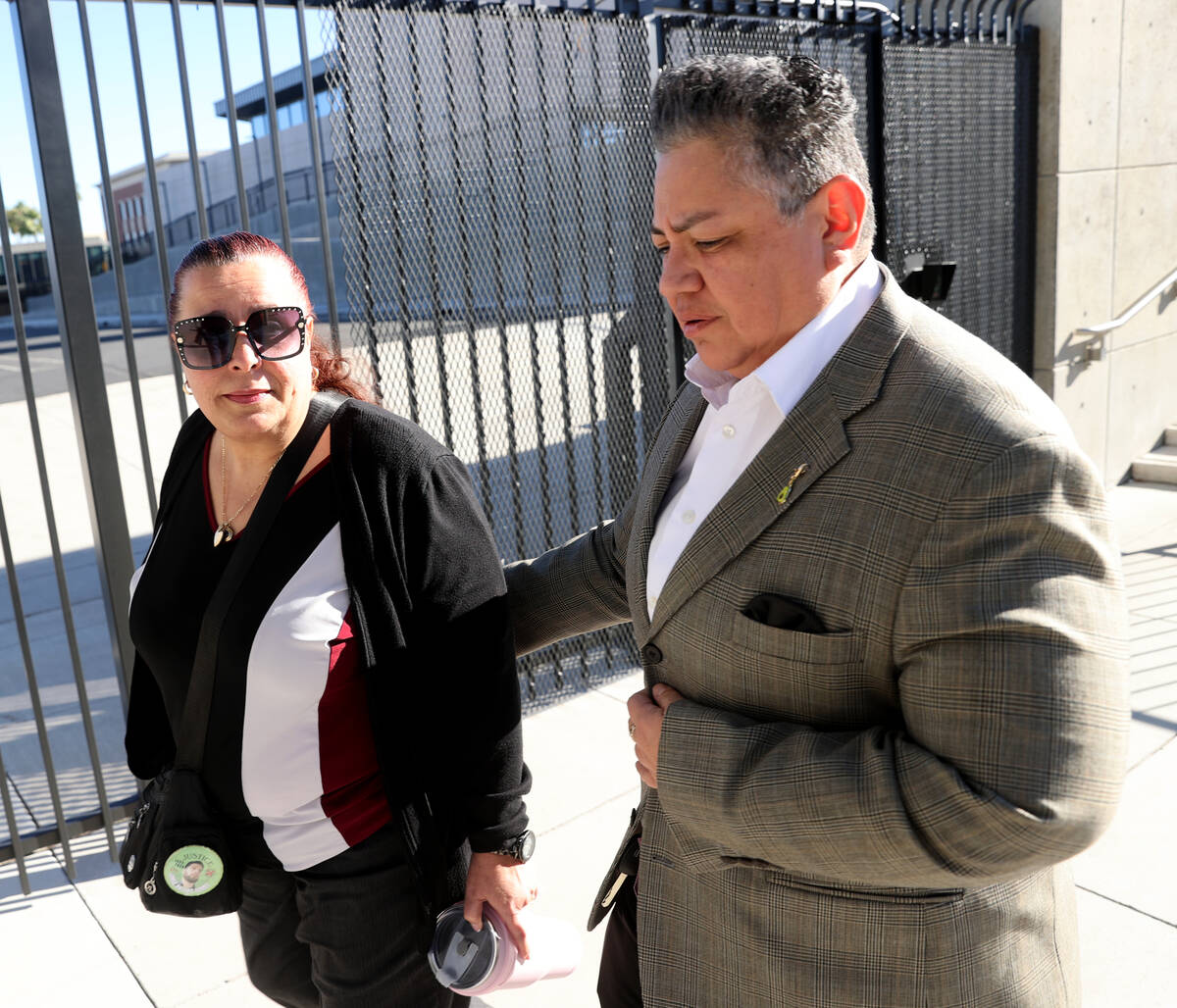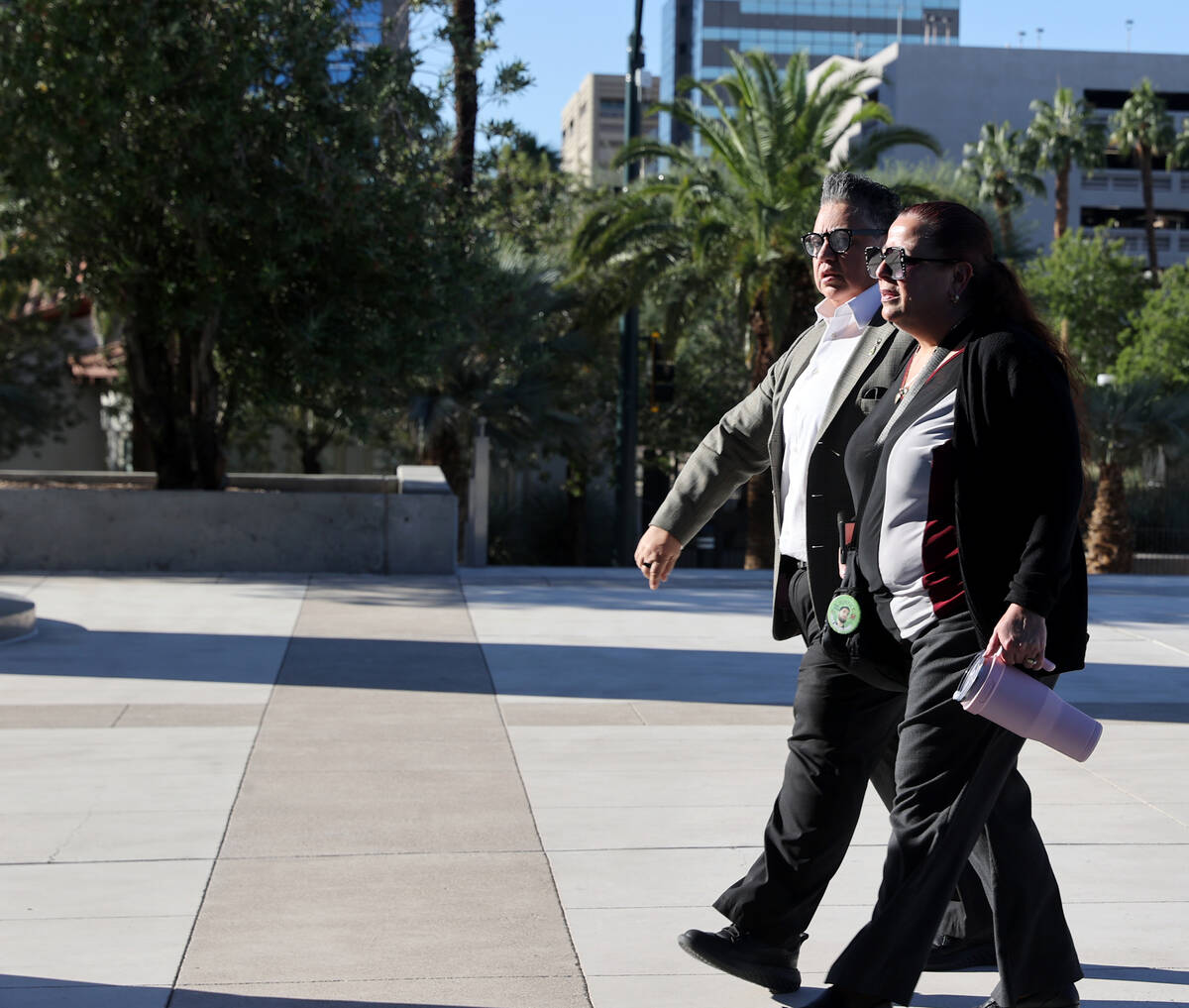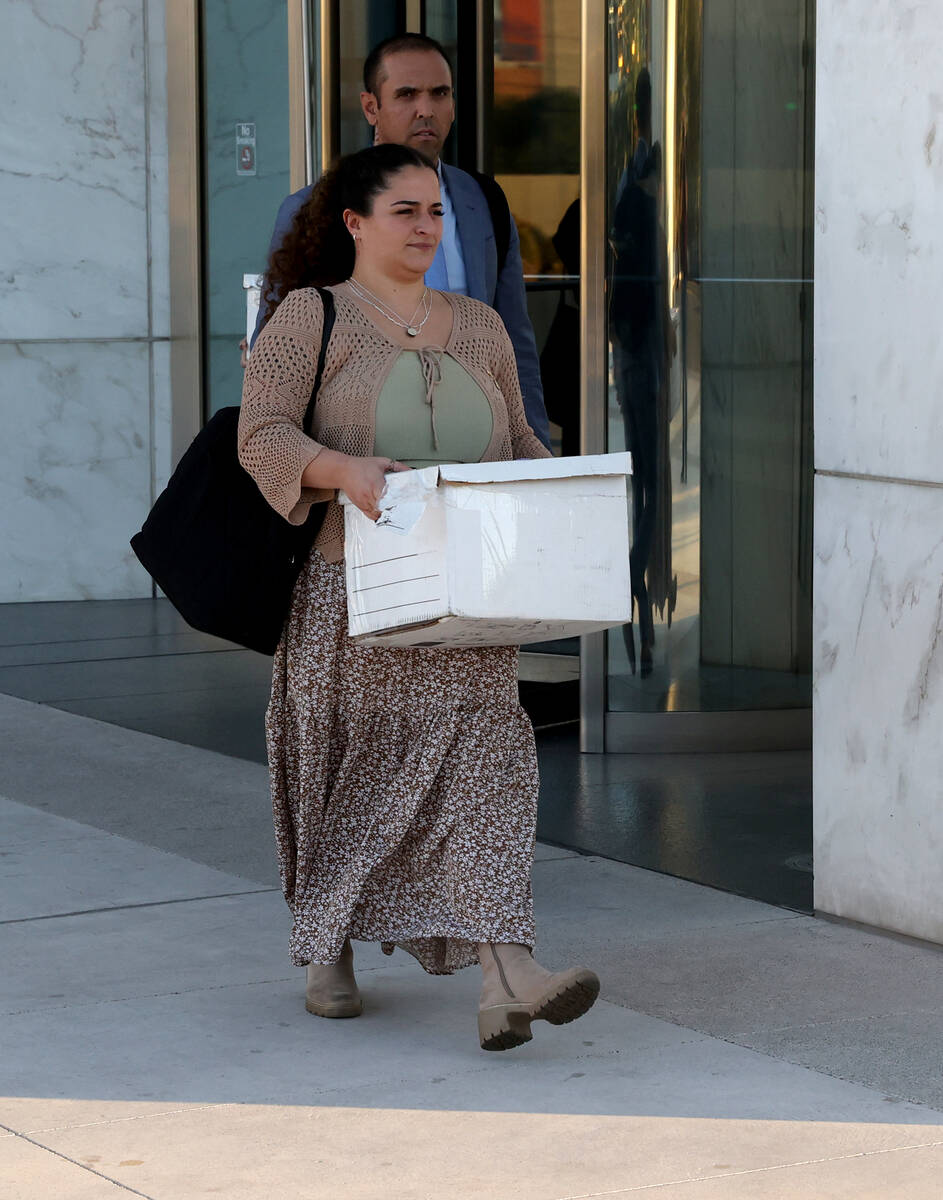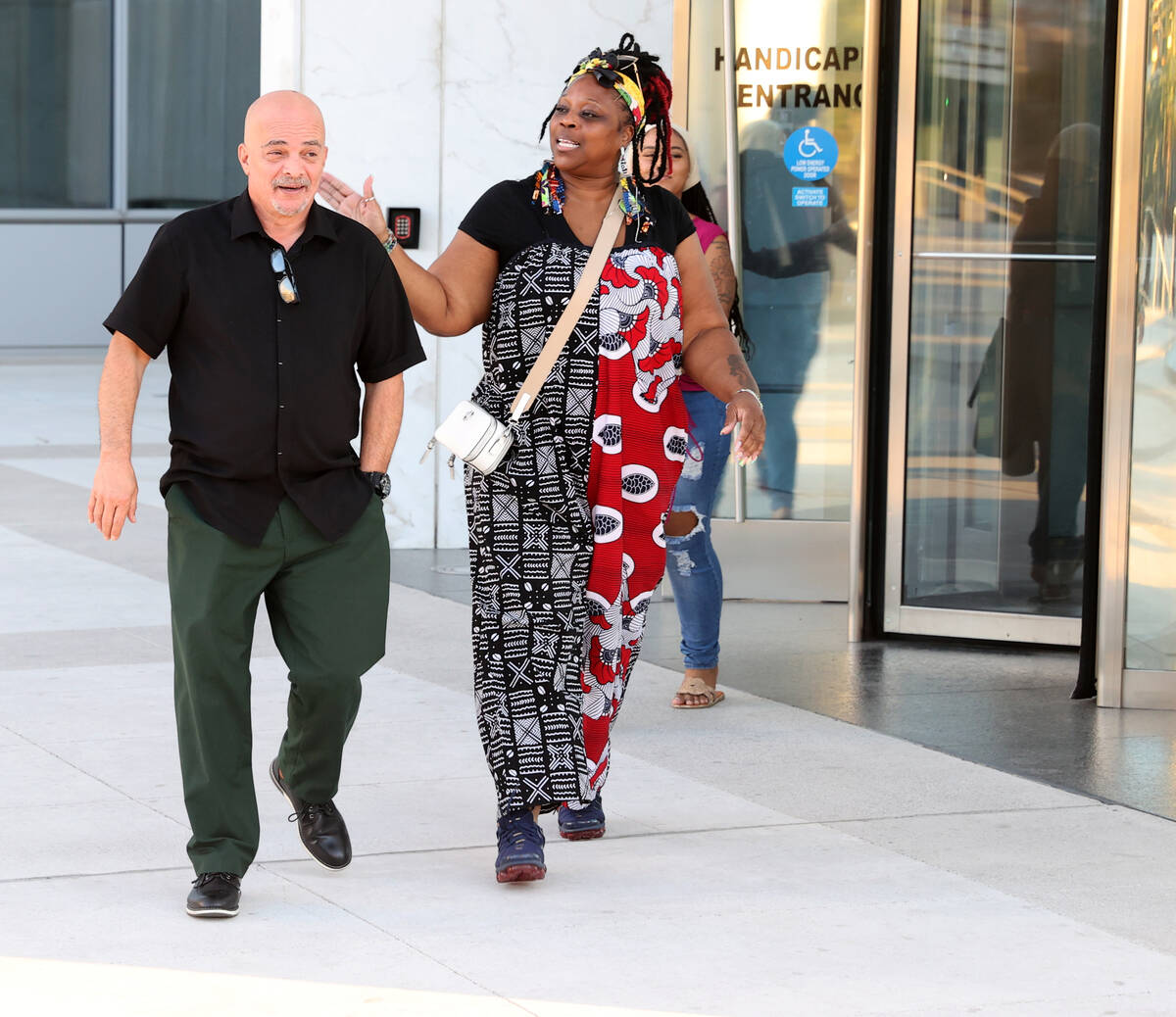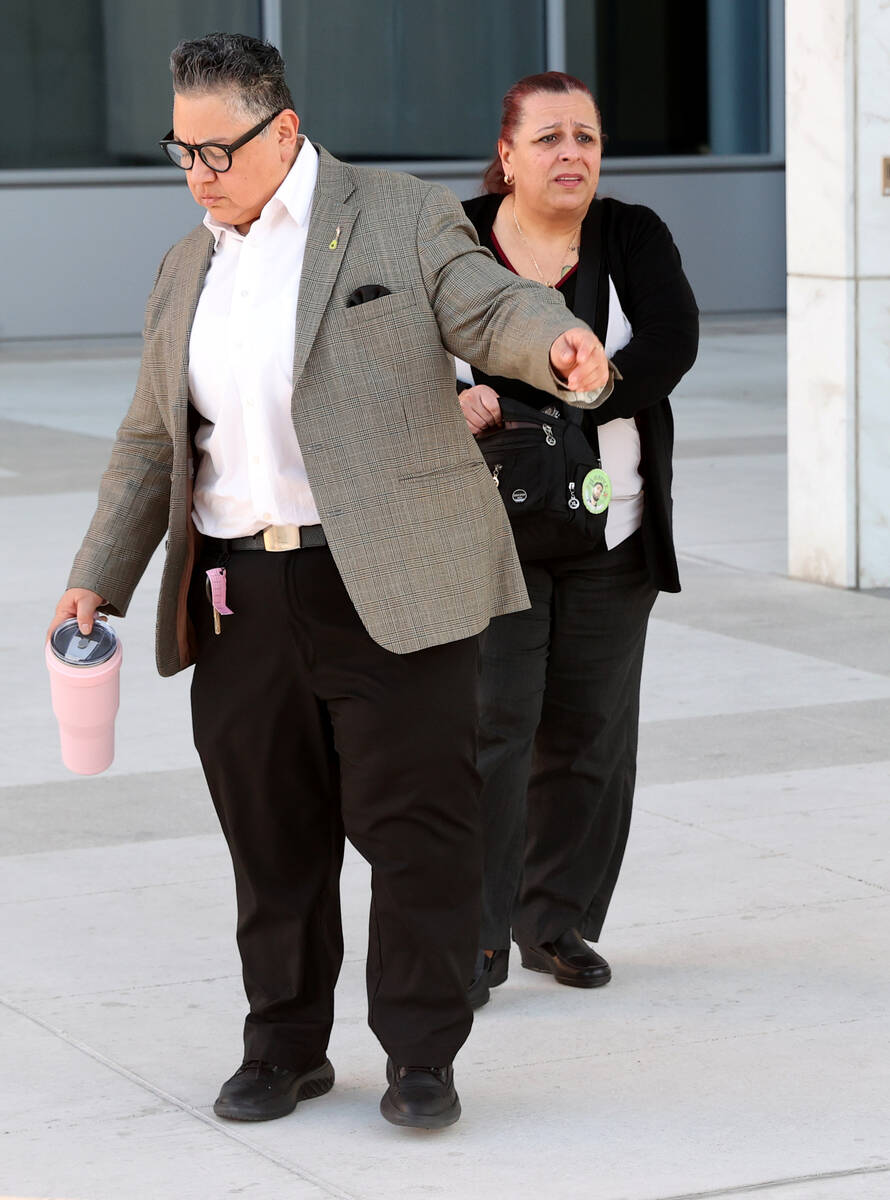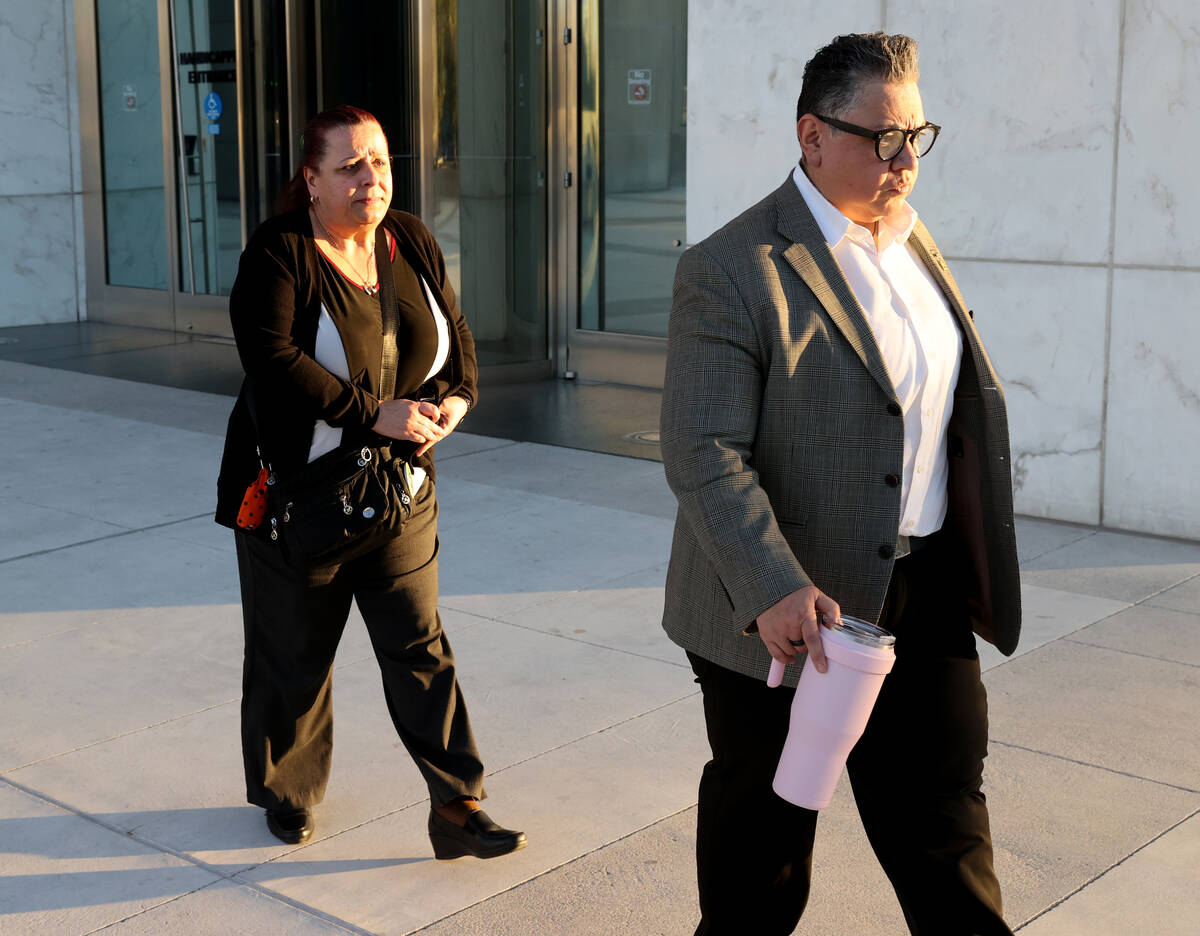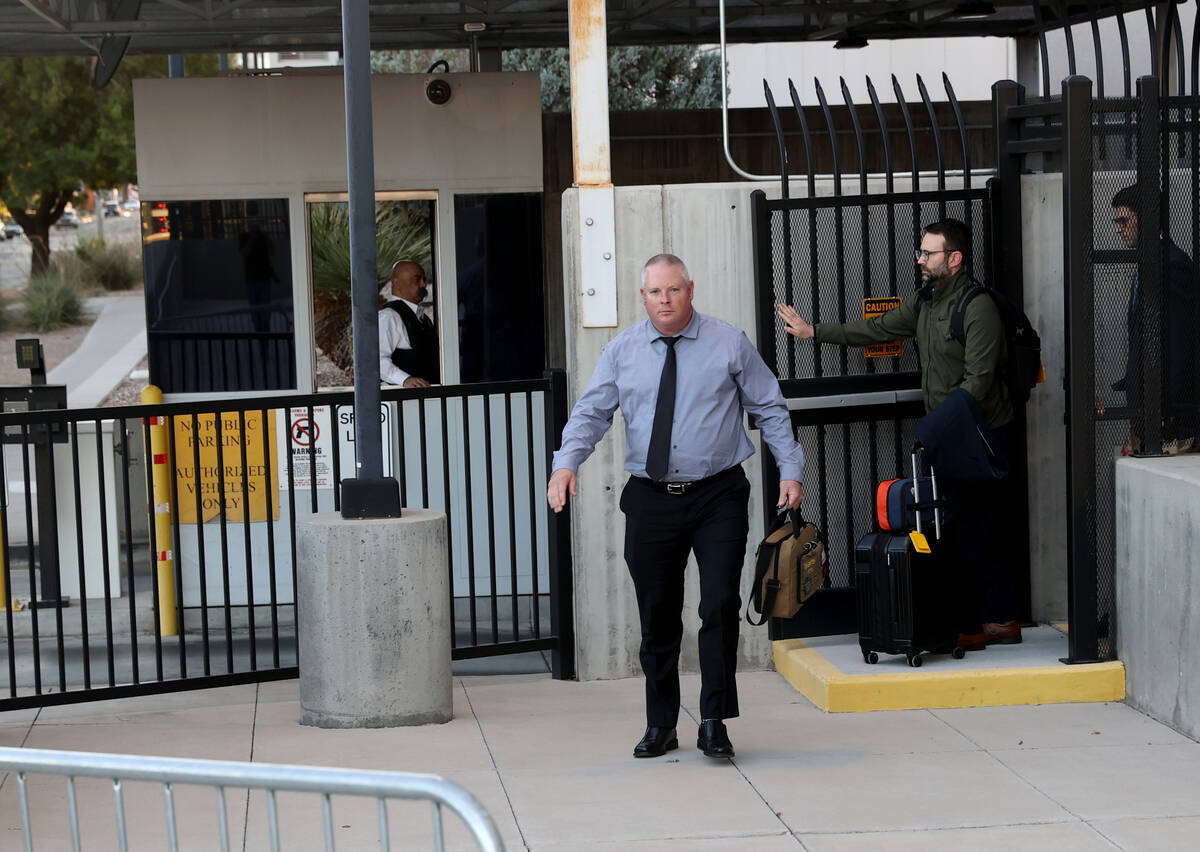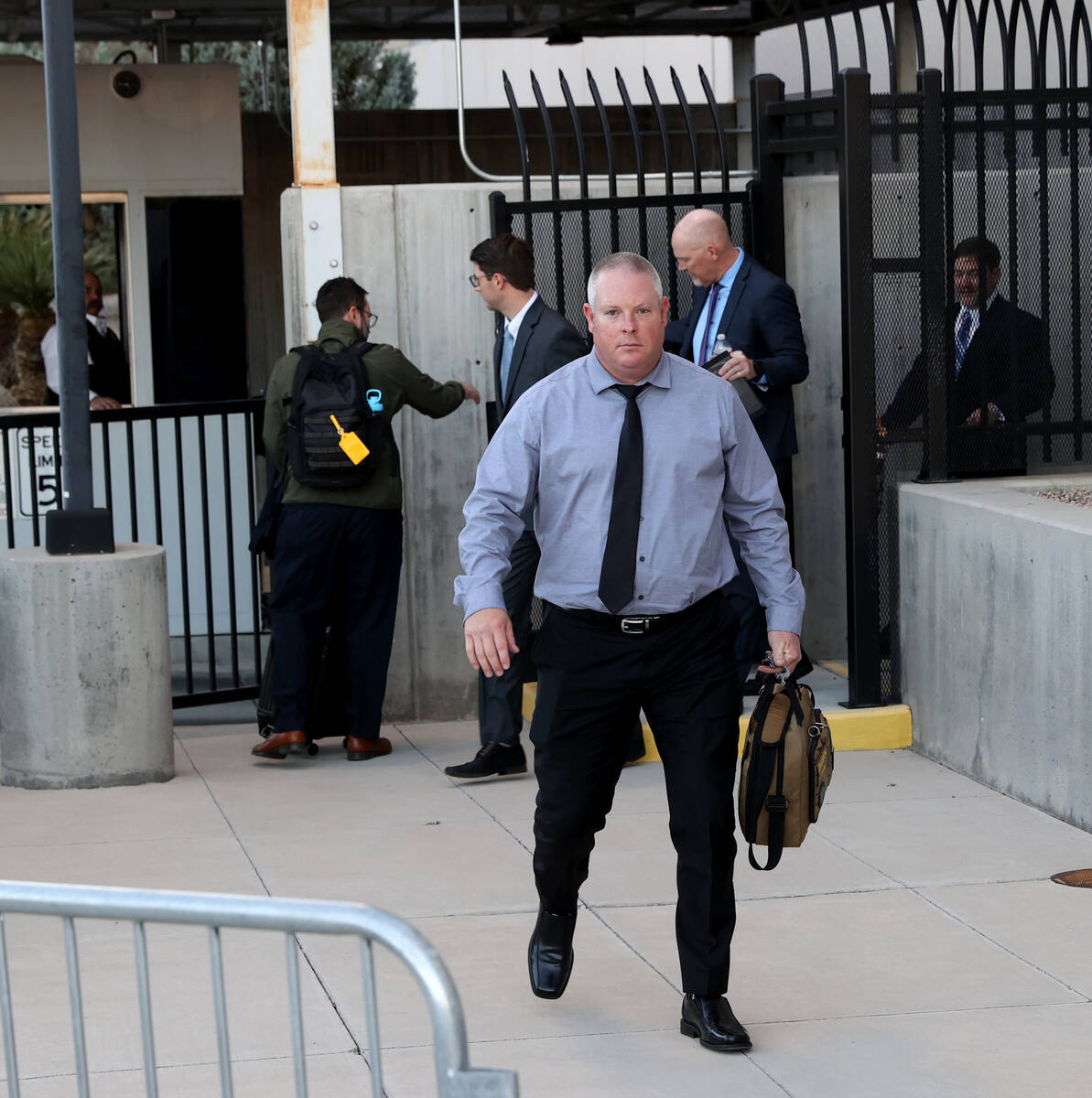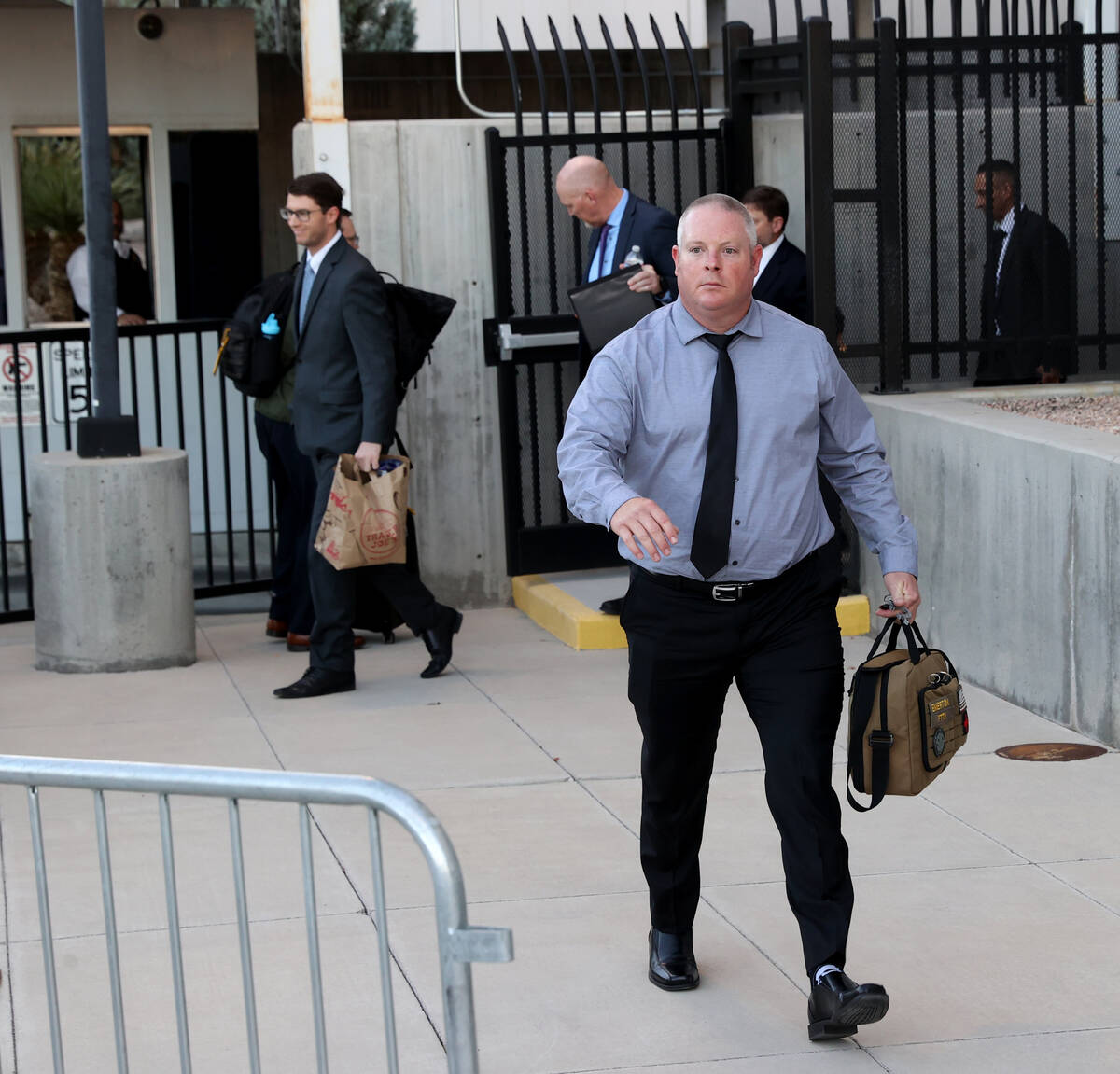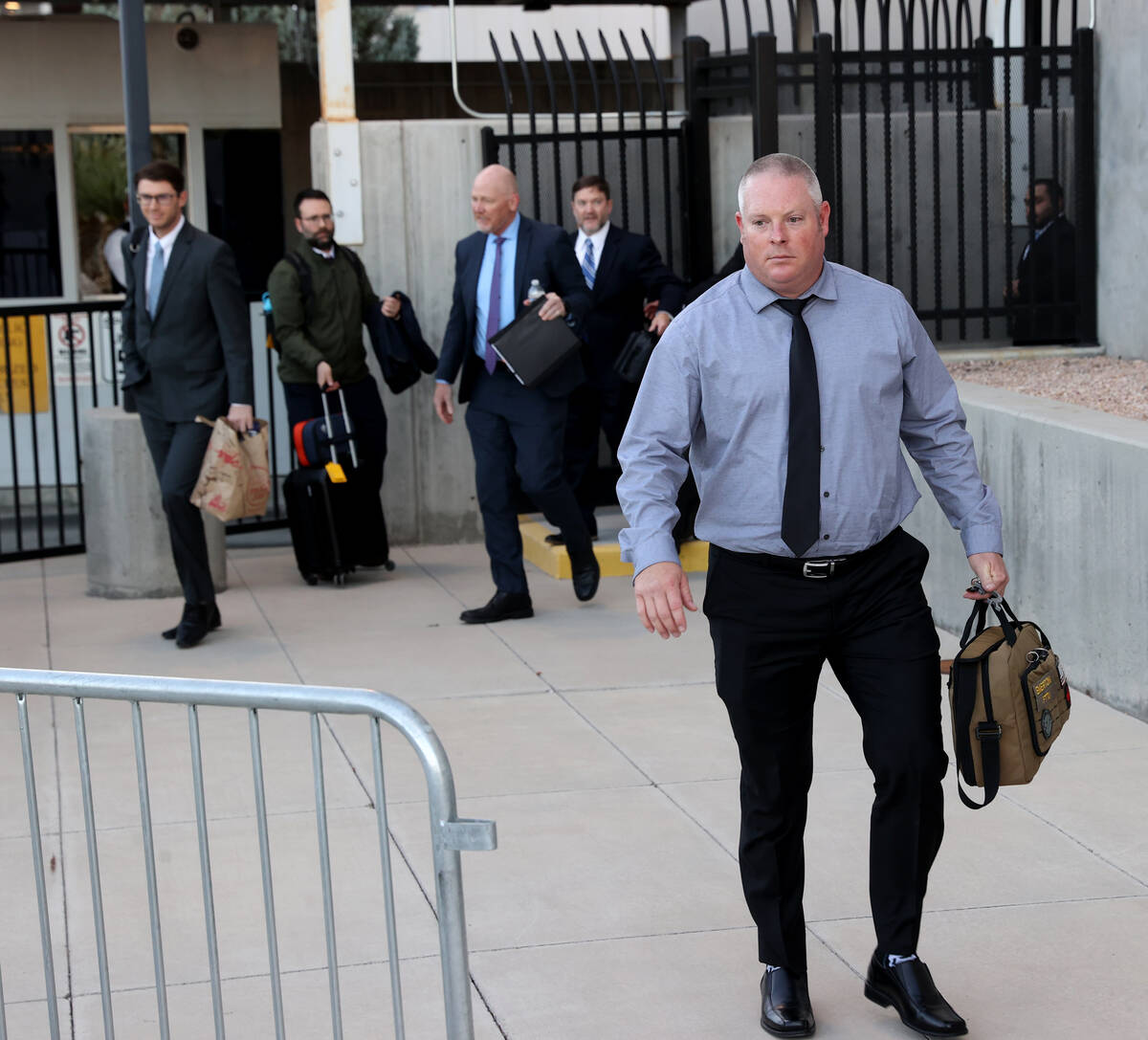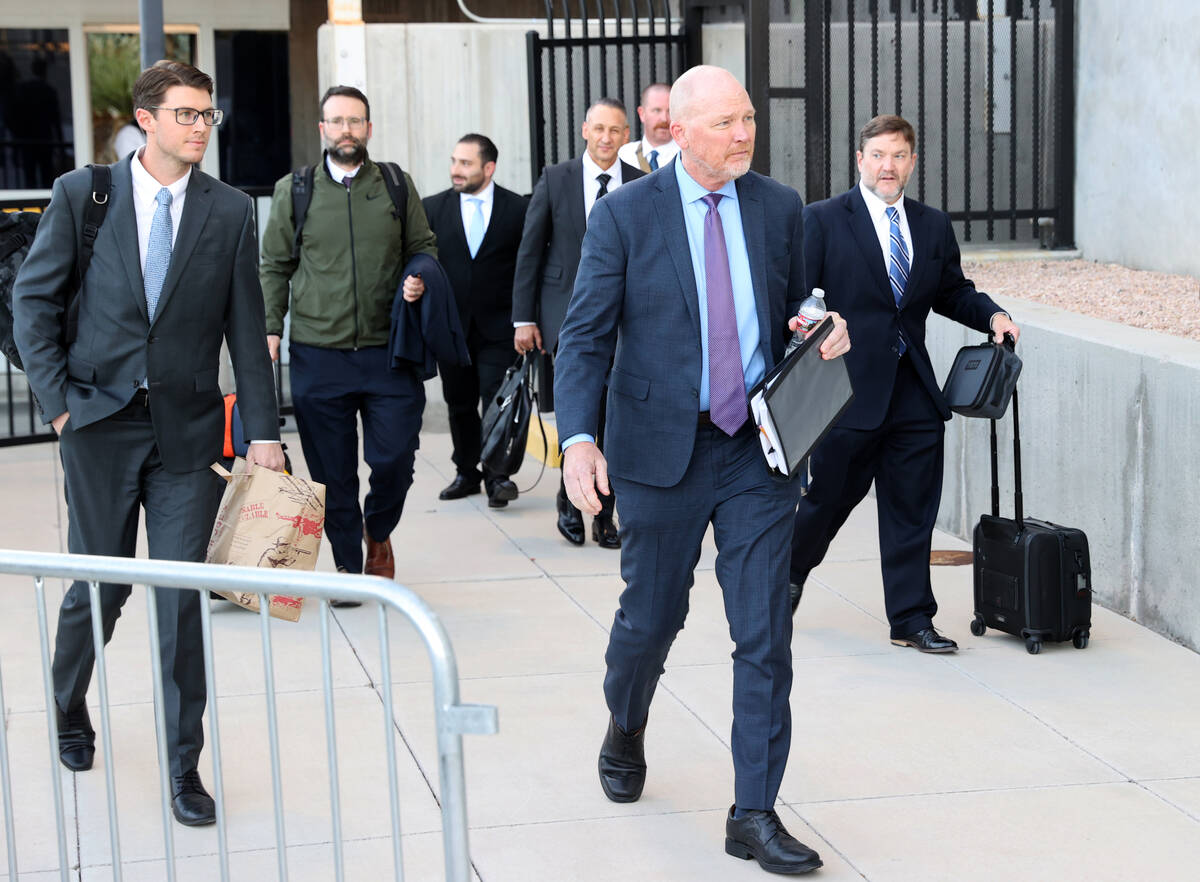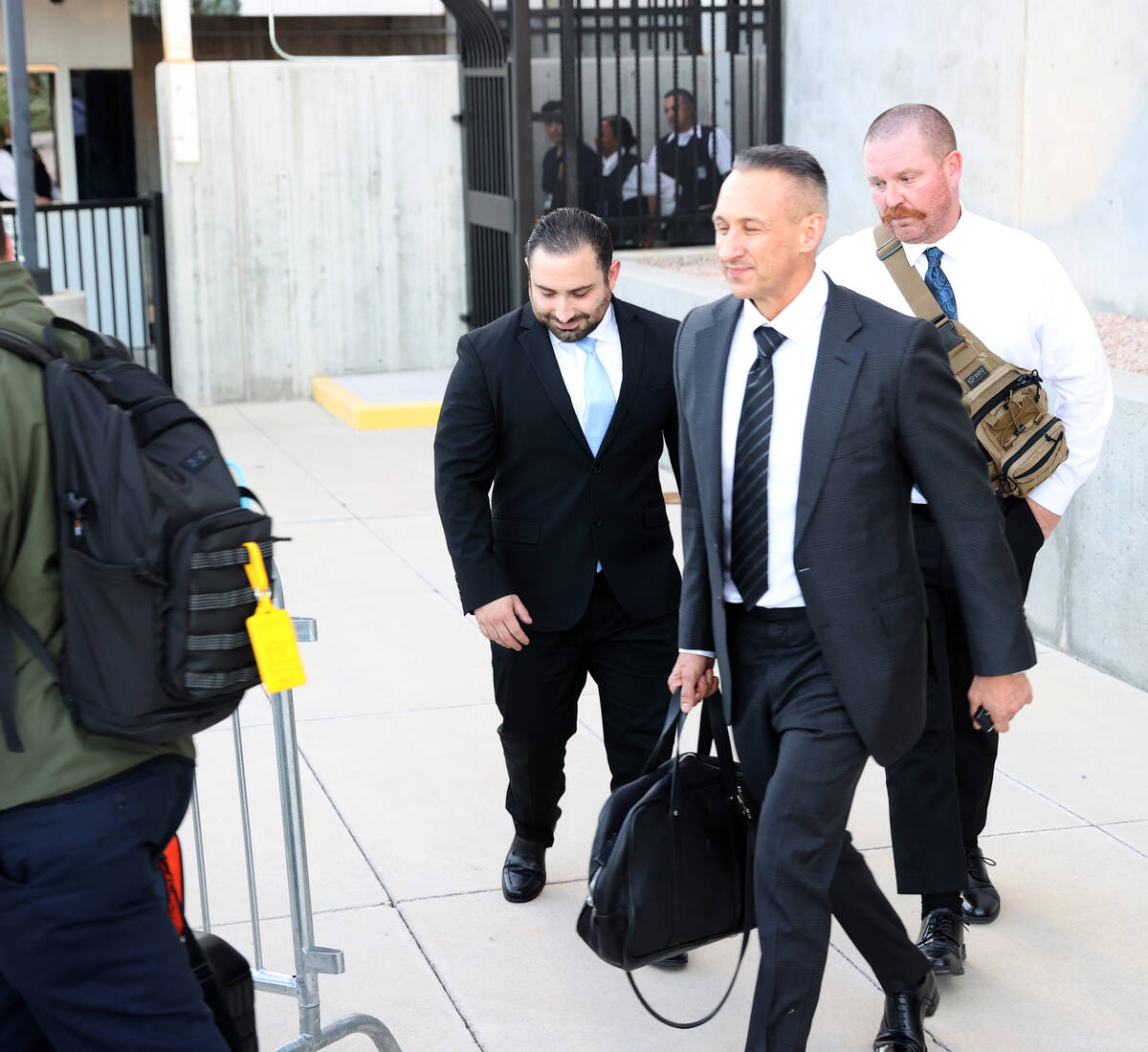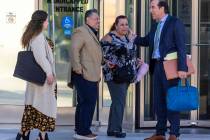Jury deliberating on trial over police killing of armed BLM protester
Jurors began deliberating Wednesday in a federal civil trial over the police killing of an armed Black Lives Matter protester.
Jorge Gomez was fatally shot on June 1, 2020, near the federal courthouse in downtown Las Vegas. It was the third night of protests over the murder of George Floyd and the shooting of Gomez, who was 25, occurred shortly after an officer was shot outside of Circus Circus.
The Clark County district attorney’s office decided not to prosecute the four Metropolitan Police Department officers who fired on Gomez: Ryan Fryman, Dan Emerton, Andrew Locher and Vernon Ferguson.
Gomez’s family sued the officers and the Metropolitan Police Department, leading to the trial.
Officers who fired shots testified that Gomez pointed a rifle at them. Lawyers for Gomez’s family deny that allegation.
Craig Anderson, a lawyer representing the officers who fired shots, told the jury the case asks them to decide a central question: When officers fired, did they perceive that Gomez posed a threat of death or serious injury?
“You need to judge their credibility,” he said. “You need to judge their demeanor. Are these the four officers who will panic and fire for no reason?”
After hearing closing arguments from attorneys, jurors started deliberations around 2:40 p.m. Wednesday. They are expected to resume Thursday morning.
Plaintiffs’ attorney Dale Galipo asserted officers went into the street to shoot Gomez “like it was target practice.”
At the time of the shooting, he said, some officers were losing patience with protesters and had learned that another officer had been shot in the head.
They fired shots because they were “hyped up and confused,” he told jurors.
Officers had stopped to gear up and go to Circus Circus when they heard the sound of gunshots, he said, and incorrectly assumed Gomez was on the courthouse steps, shooting at officers and civilians.
John Squeo, a detective also named as a defendant, had fired a beanbag shotgun at Gomez before the fatal shooting.
Galipo said the officers were expert shooters who knew the only way to justify the shooting was for Gomez to have pointed the rifle at them and have been about to shoot them. He told jurors they would have to decide whether to believe those claims.
“They want you to say all the shots were justified,” the family’s attorney said of police. “’It happened fast. We’re the police. Give us a pass.’ That’s not fair.”
Plaintiffs think there is “overwhelming” evidence Gomez did not point his rifle at the police when they shot and killed him, Galipo told the jury.
Anderson said in his closing that he would ask jurors to do something that “takes courage” and tell Gomez’s grieving family: “We are sorry for your loss, but it’s not these defendants’ fault.”
Gomez, he said, “created and provoked” the whole situation. Officers stepped into the street and risked their safety to stop what they viewed as a possible threat, Anderson told the jury.
When Gomez started to raise the rifle, they all perceived the same threat and responded with lethal force, he said.
The defense attorney questioned Gomez’s goals the night of the shooting, pointing out that the man wore body armor and carried a rifle.
“Circumstantial evidence tells you his intention was to be provocative, to create problems and to instigate confrontation,” Anderson argued.
The defense attorney also pushed back on the suggestion officers had been dishonest, saying they told the truth about their incorrect initial perceptions of what occurred at the steps of the courthouse.
Video frames depict something extending from Gomez, Anderson told the jury, adding, “It’s your job to decide what that shows.”
Daniel McNutt, Squeo’s attorney, said his client used non-lethal beanbag rounds because Gomez was about to attack a colleague with the rifle, which Squeo thought was a bat. He told the jury they should view the beanbag rounds and fatal shooting as separate events.
Galipo argued Gomez was exercising his First Amendment rights and alleged Squeo fired beanbag rounds in retaliation. That Gomez was in the process of assaulting another officer is an “incredible story,” he said.
McNutt said Gomez was not actively protesting, but walking to his car.
The Las Vegas Review-Journal previously reported that Squeo resigned from Metro after a disorderly conduct case.
Jurors have already asked questions about whether the act of not complying with officers’ commands is a form of expressive conduct and whether protesting is the only form of expressive conduct.
U.S. District Judge Richard Boulware told them not complying can be a form of expressive conduct and answered no to the second question.
Contact Noble Brigham at nbrigham@reviewjournal.com. Follow @BrighamNoble on X.



